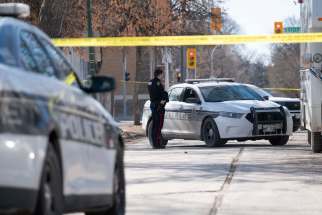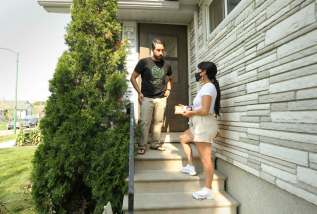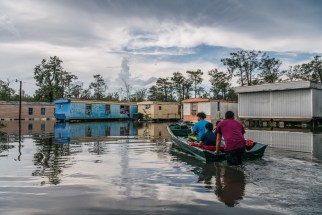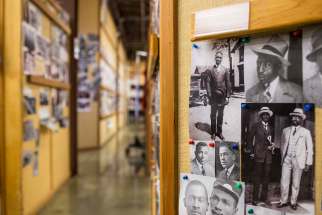Hurricane no match for New Orleans’ heart
Read this article for free:
or
Already have an account? Log in here »
To continue reading, please subscribe:
Monthly Digital Subscription
$0 for the first 4 weeks*
- Enjoy unlimited reading on winnipegfreepress.com
- Read the E-Edition, our digital replica newspaper
- Access News Break, our award-winning app
- Play interactive puzzles
*No charge for 4 weeks then price increases to the regular rate of $19.00 plus GST every four weeks. Offer available to new and qualified returning subscribers only. Cancel any time.
Monthly Digital Subscription
$4.75/week*
- Enjoy unlimited reading on winnipegfreepress.com
- Read the E-Edition, our digital replica newspaper
- Access News Break, our award-winning app
- Play interactive puzzles
*Billed as $19 plus GST every four weeks. Cancel any time.
To continue reading, please subscribe:
Add Free Press access to your Brandon Sun subscription for only an additional
$1 for the first 4 weeks*
*Your next subscription payment will increase by $1.00 and you will be charged $16.99 plus GST for four weeks. After four weeks, your payment will increase to $23.99 plus GST every four weeks.
Read unlimited articles for free today:
or
Already have an account? Log in here »
Hey there, time traveller!
This article was published 01/09/2021 (1561 days ago), so information in it may no longer be current.
Former Free Press reporter Carreen Maloney lives in New Orleans. She was there when Hurricane Ida hit on Sunday and has filed this special report for the Free Press.
As hurricane Ida hurtled towards New Orleans on Aug. 29, residents who had survived its sister storm, Katrina, had a sinking feeling. The permanent emotional scars from Katrina’s devastation run long and deep. It was hard to fathom that Mother Nature was returning to clobber New Orleans with another massive hurricane on the anniversary of the day she delivered Katrina 16 years ago.
One of my greatest regrets is that I never visited New Orleans before 2005, when it was forever changed by Katrina. I arrived in the storm’s aftermath as a volunteer helping to rescue 25,000 companion animals who had been left behind. Even then, I found the city irresistible. Despite the problems that plague the city — violent crime, sagging infrastructure, scant career opportunities — this city has captured my heart.
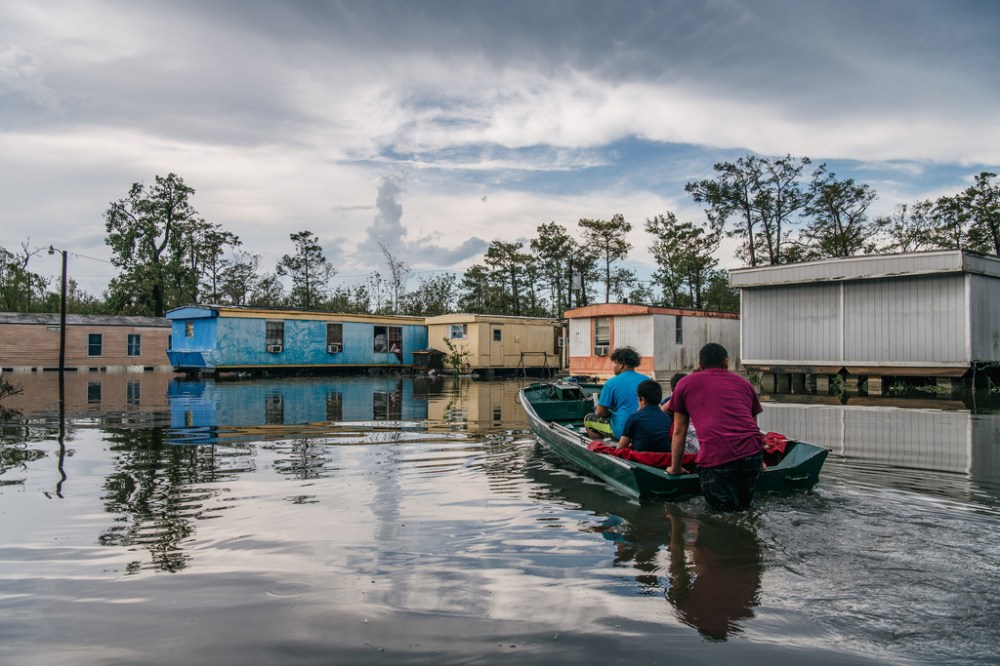
Now Ida was barrelling straight for us, and I had a choice to make — would I evacuate along with the thousands of others who chose wisely to get the heck out of town? Or would I stay and experience what it was like to be in the eye of what threatened to be one of the most powerful and significant storms in American history?
In truth, by the time Ida revealed its immense power, there was barely any time to consider the options. Although the mayor, LaToya Cantrell, had good reason to call for a mandatory evacuation, she didn’t have the window of opportunity to do so. Ida was moving too fast for the 72-hour time frame required to get everybody out safely.
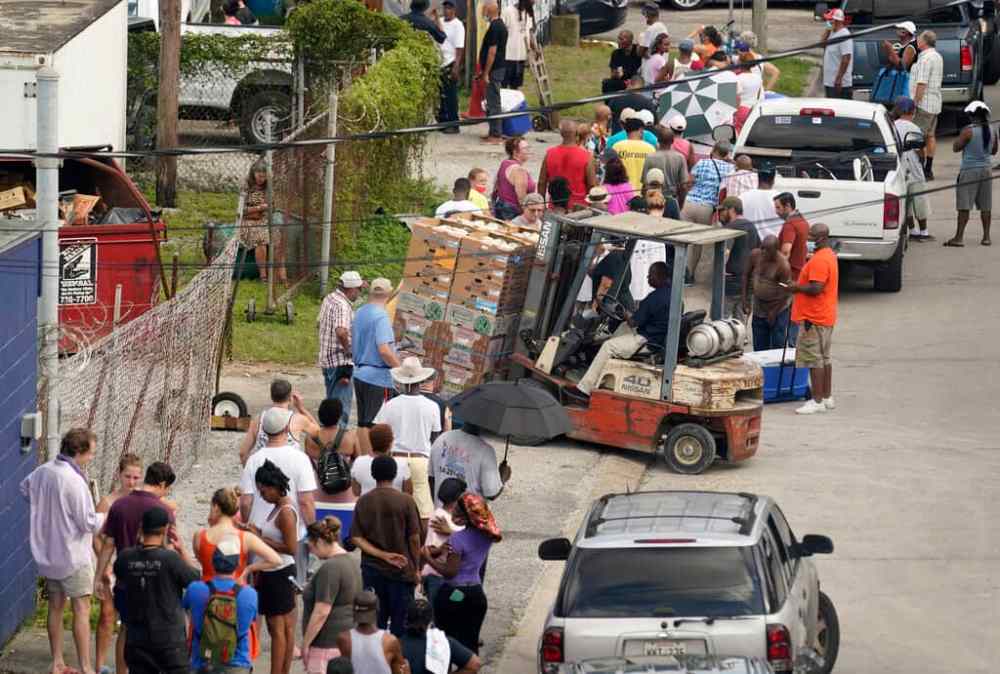
But while the storm moved quickly before it got here, it mimicked the way some tourists take to New Orleans when it arrived: it simply would not leave. I’ve been through hurricanes before, but they felt nothing like this one. I thought I was prepared. I gathered up food, water, ice, gas and batteries, and outfitted my dog with a tiny life jacket. I was ready to batten down the hatches in my apartment in a converted factory building that is more than 100 years old. I reasoned that because the structure had stood up to the elements for this long, it would be a safe enough place to shelter.
I expected to face two, maybe three hours of intense storm activity. But when the water and wind picked up around noon Sunday, it began an 11-hour ordeal. By the time I finally fell asleep, soaking wet in my flooded apartment, sometime after 10 p.m., Ida was still exacting her wrath outside with no sign of relenting. The four-storey building groaned and shook. At times, I wondered if it was going to cave to the pressure and crush us all.
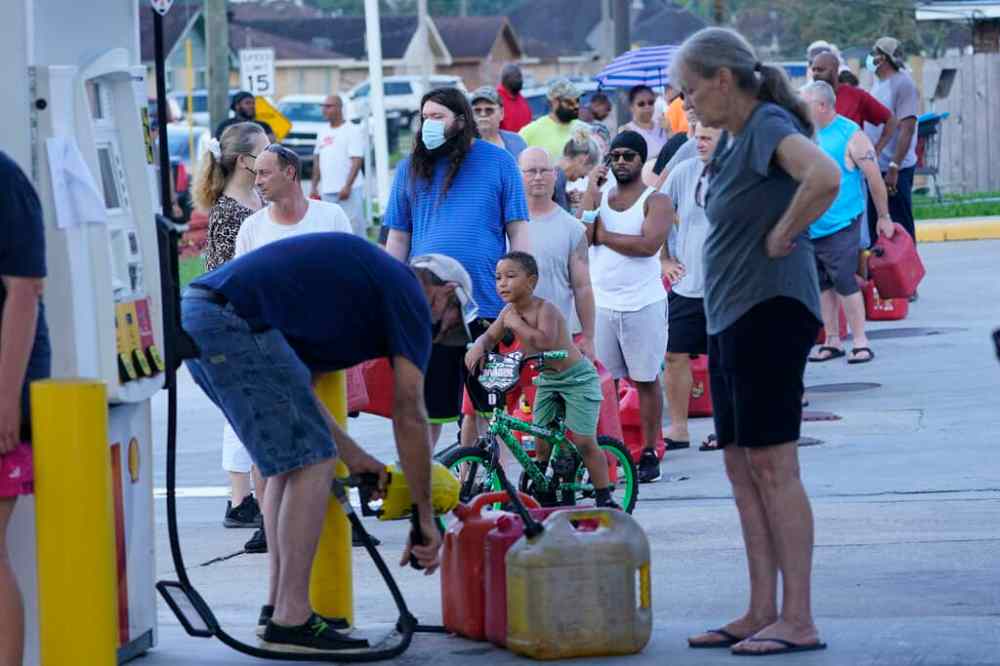
I had spent hours trying to hold back the water pouring in under the doorway, running down the walls and dripping down from the flooding apartments above. The indoor water sounds were so eerie that I made a recording of them. In the darkness with only a small LED lantern to guide me, I hurried to stack my belongings as I tried to save what I could.
Citizens had been warned to stay away from windows, but occasionally my curiosity got the best of me. I would creep downstairs and, using all my strength, pry the door open an inch to peek outside. I’ve stood before the Grand Canyon and Niagara Falls and felt awe from the power of nature before. But these world wonders paled in comparison to Ida’s force. Even a small object was turned into a projectile capable of maiming or killing a person. Trash bins shot down the streets like missiles. The wind bent the trees at sharp angles before lifting them right out of the ground. The rollup doors at the warehouse loading dock across the street were ripped out of their sockets.
I can’t deny the temptation to step outside and feel Ida’s full power, but that was fleeting. The moment I slackened my force against the door even slightly, it slammed shut as if it were vacuum sealed.
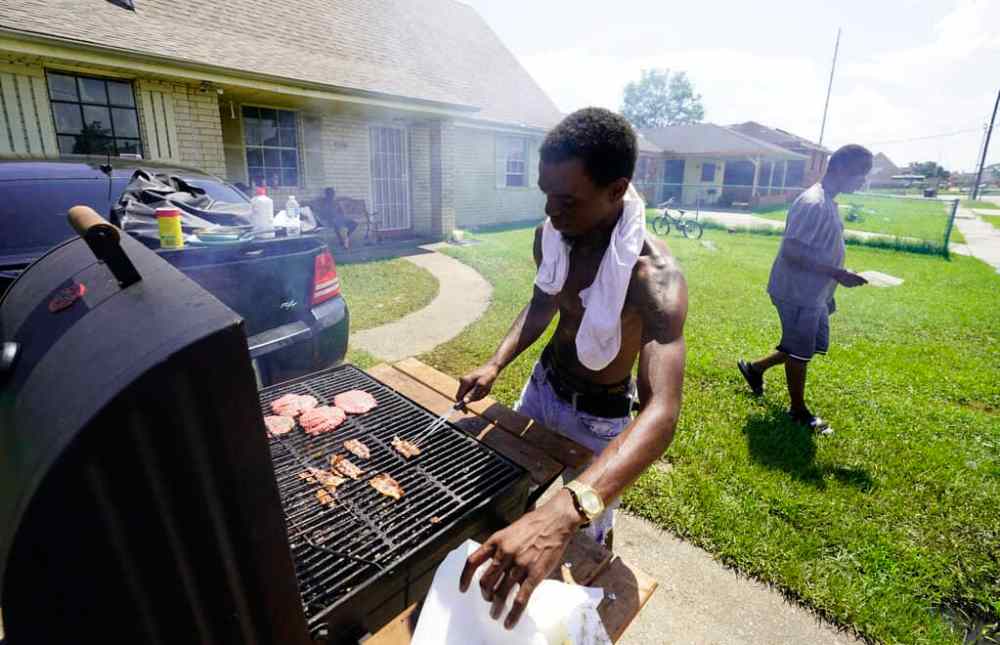
Major electrical transmission equipment has been damaged and cut the entire city off from power. We’ve been told it could take a month, or even two, to restore. Without power, the city is quieter than usual, but sometimes I hear bursts of gunfire. Military planes roar above us flying low. Downed trees and power lines litter the streets. Power poles and street signs jut at strange angles, bent by fierce winds.
New Orleans Police Department has deployed anti-looting teams to combat crime. The storm hadn’t even started when looters and vandals took advantage of a city under siege. When storms bringing floodwaters are rolling into New Orleans, it is understood that you can park your vehicle up on the grassy medians, known here as “neutral ground.” Thieves did smash-and-grabs on many of them before Ida even struck.
Despite how undesirable a hurricane is, there are rewards to be had once the storm has passed. That’s when the best of human nature comes out (and occasionally the worst). Just like Manitobans after a snowstorm, the people of New Orleans mobilize to help each other when the storm subsides.
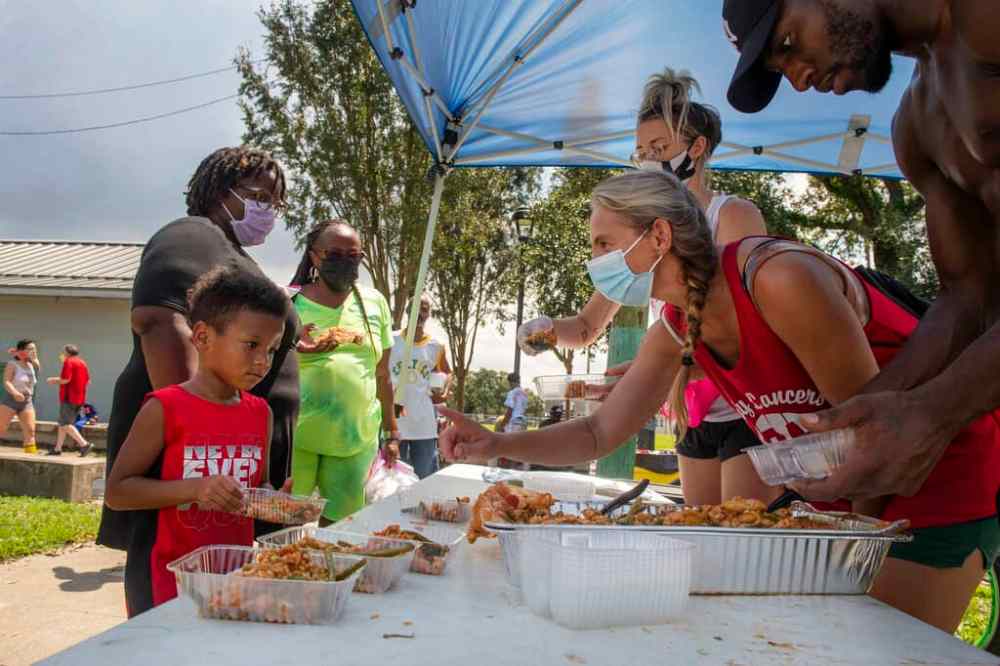
First, people drift outside, usually wearing dazed looks on their faces. They do an informal count to make sure everyone they live near is safe and accounted for. Then they generously share with each other what precious supplies they have on hand. People who miraculously track down ice and water roam the streets, giving it away to anyone in need. Those who stocked up on food offer items to their neighbours. Perhaps most importantly, residents share information. Ida took down all the government websites in New Orleans and disabled the 911 emergency system, so people had to communicate the old-fashioned way: word of mouth.
As I was writing this, an employee from a gastro pub in my neighbourhood knocked on my door to let me know they were giving away all their food to locals for the next hour. People with coveted generators have set up cellphone charging stations, securing power bars to their fences and offering free charges, even though they could easily take money from people desperate to communicate with loved ones. Just as they always do, the people of New Orleans are rallying together to survive this catastrophe, and you can feel the human spirit operating at its full potential. That’s the reward for staying.
Those of us remaining have a serious decision to make: do we tough it out, or do we get out now? Some are packing up and leaving now, fearing a long wait for power in a city that is growing more dangerous by the day as its inhabitants become more desperate. The scorching heat of the South will have to be endured without air conditioning. Officials are pleading with people to stay calm, offering reassurances that actions are being taken to get us back up and running as soon as possible. But the lack of power, resources and operational infrastructure creates a situation ripe for crime to flourish.
I haven’t yet decided whether I’ll cave in and leave, or stay and stick it out. When it comes to New Orleans, I always find it hard to walk away.



